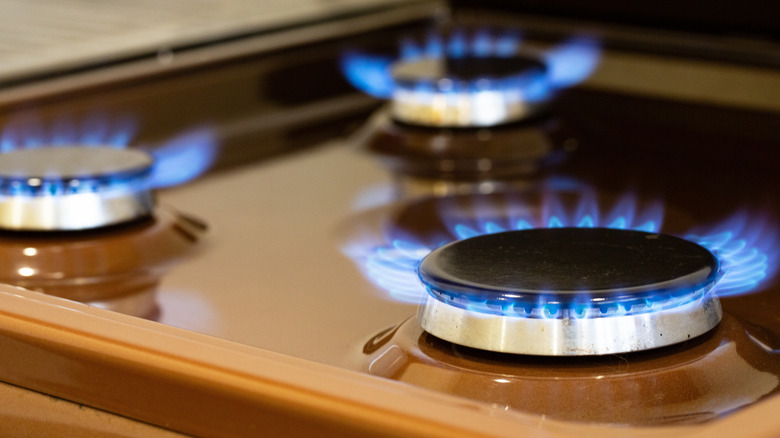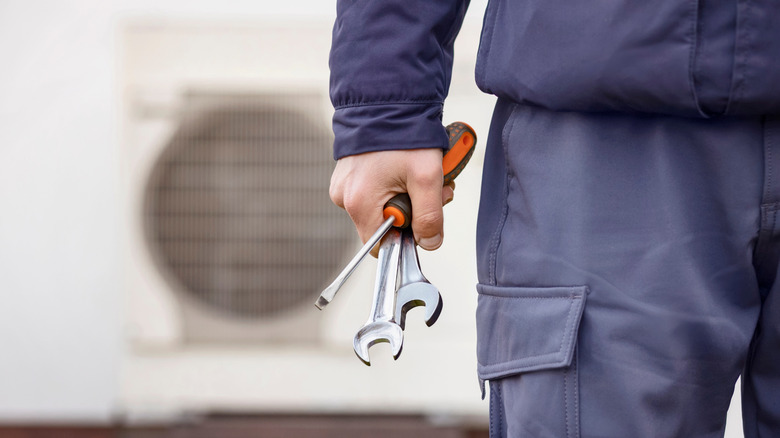Is It Time To Ditch Gas Powered Appliances?
Gas-powered appliances are prized for their ability to provide instant and consistent heat. Some home chefs even swear that cooking with a gas-powered stove makes their dishes taste better. While there are definite advantages to opting for gas appliances, such as potentially lower operating costs, there are also significant drawbacks, like their negative impact on air quality. The effect on air quality has even prompted states such as California to enact regulatory laws phasing out certain gas-powered appliances in new construction. This raises an important question: Should you also switch from gas to electric appliances?
There are numerous reasons to switch to electric appliances, including reducing indoor pollution and lowering greenhouse gas emissions. While switching out your gas kitchen stove for an electric one might seem like a downgrade, you will find that today's efficient and feature-packed electric stoves are well worth consideration. However, in some cases, upgrading a home full of gas appliances to new electric versions isn't feasible, making it important to plan ahead.
The case for switching to electric appliances
According to a 2024 paper published by Environmental Health Perspectives, when a gas-powered stove is turned on, it immediately releases carbon monoxide, methane, nitrous oxide, and nitrogen dioxide into the air. In poorly ventilated kitchens, these pollutants can reach harmful levels, negatively impacting human and environmental health and aggravating respiratory issues, like asthma.
Unfortunately, the problems don't stop with just gas stoves. All gas-powered appliances, including water heaters, furnaces, washers, and dryers, can emit carbon monoxide, as well as other hazardous greenhouse gases such as benzene, carbon dioxide, and nitrous oxide into the air. Aside from emission concerns, gas appliances pose other safety risks. Gas leaks, for example, can cause several issues, including explosions, carbon monoxide poisoning, or fire. The shift from fossil-fueled electricity to renewable sources, such as wind and solar, makes electric appliances a safer long-term choice.
The best place to start when switching from gas to electric appliances
If you want to reduce indoor air pollutants and help lower greenhouse gas emissions that contribute to climate change, the science is pretty clear: switching from gas or propane appliances to electric ones helps. According to the Department of Energy, new electric stoves are approximately three times more energy-efficient than gas stoves, and tax incentives are available for making the switch. Additional tax credits and rebates are also offered for qualifying electric heat pumps, electric panel upgrades, and more. However, making the switch can still be frustrating and expensive if you have a house full of gas appliances.
If anyone in your household suffers from asthma, the best place to start is with your gas-powered stove. Replacing it with an electric model can immediately reduce air pollution levels. You can then take other easy steps to improve your indoor air quality. Another helpful strategy is to simply upgrade to an electric appliance when your gas-powered model quits working. Doing this keeps good-working appliances out of the landfill and helps if your budget doesn't allow immediate replacement. Whatever you decide to do, be sure to do some research and avoid unreliable appliance brands. Alternatively, you can take a proactive approach by starting with the replacement of your oldest appliance, which will improve the energy efficiency of your home and potentially lower your ongoing energy costs.


